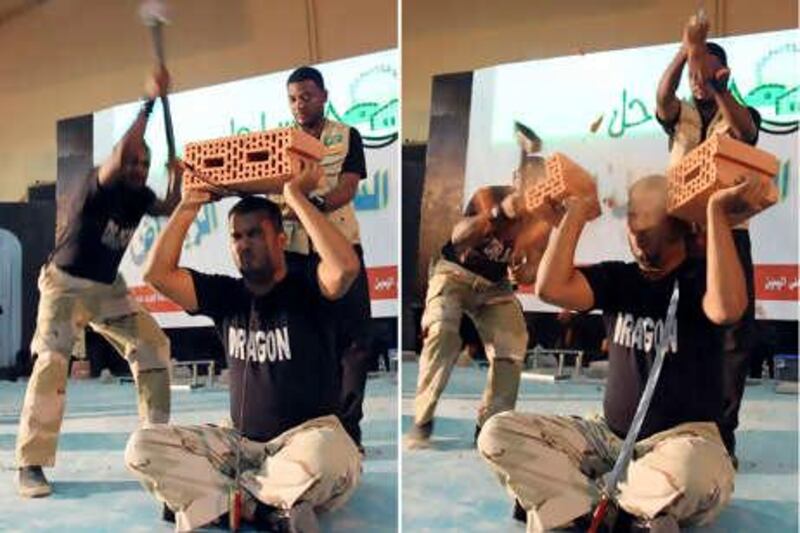RIYADH // Saudi artist Maher al Luqman is always nervous when he goes on stage to eat glass and fire or to walk on nails, for fear the country's religious police will disrupt his show. The leader of a troupe of 12 strongmen, Luqman struggles for acceptance in a country where many forms of entertainment and unusual feats of strength are sometimes seen as attempts to promote sorcery.
Mr Lugman, 35, told Reuters: "They have stopped us for two years, branding us as sorcerers, and calling for people to fight us and report us." The Saudi government is trying to promote internal tourism but its efforts are complicated by the restrictions on singing, dancing and the mixing of unrelated men and women.
Public entertainment like that provided by groups such as Luqman's Altineen, which means "dragon" in Arabic, is rare. Every summer the Saudi Commission for Tourism and Antiquities organises public festivals in cities in the kingdom. Last year, concerts and some circus shows were banned because of what the Saudi religious police described as their contradiction to Islam. Conservative clerics and religious police, backed by members of the Saudi royal family, resist activities that they believe do not comply with the cultural and religious norms of the country.
Jeddah's annual summer film festival was cancelled last year despite the support of the local governor, Prince Khaled al Faisal. In Abha in the kingdom's southwest mountains, some concerts were also banned from a tourism festival. Luqman's group had permission to perform last week in a desert town 200 km north of the capital, Riyadh, but was abruptly stopped from going on stage by an order from the religious police.
Mr Luqman keeps trying to perform because of the loyal fans who flock to his shows. However, he said: "I am fed up. I want to leave. It is so sad to see these talents go to waste." Ahlam Abdullah,after watching how Mr Luqman's men piled five huge bricks on his stomach and smashed them one by one with a hammer while he was lying still, said: "I really enjoyed the show. They deserve encouragement."
Mezher al, Qarni, who came with his daughter to watch the group performing in a park near Riyadh, agreed: "Frankly, this was quite a performance." * Reuters





